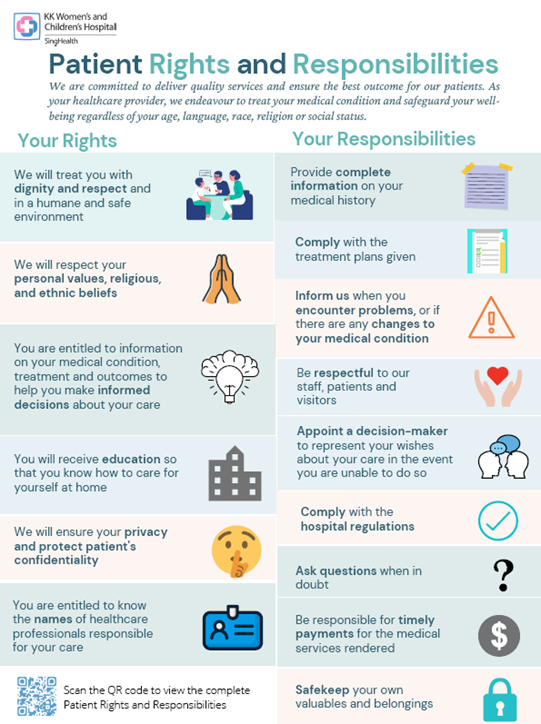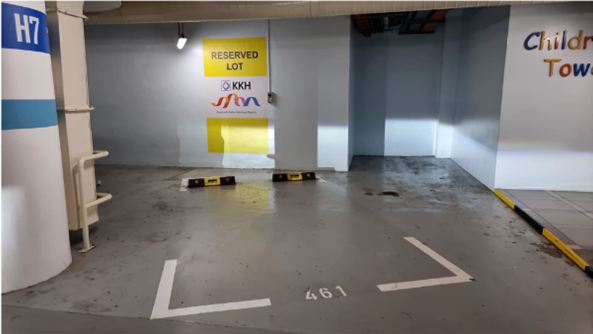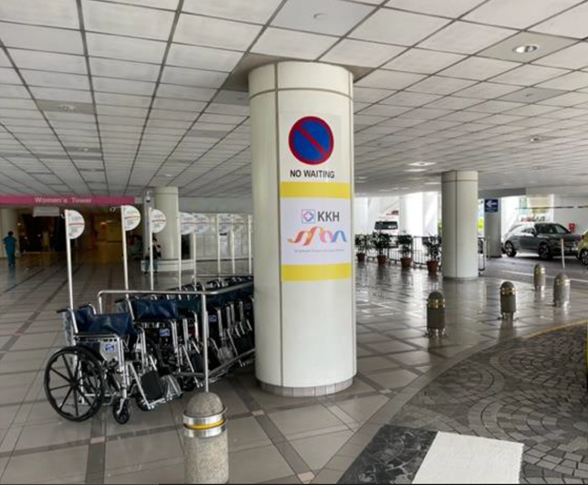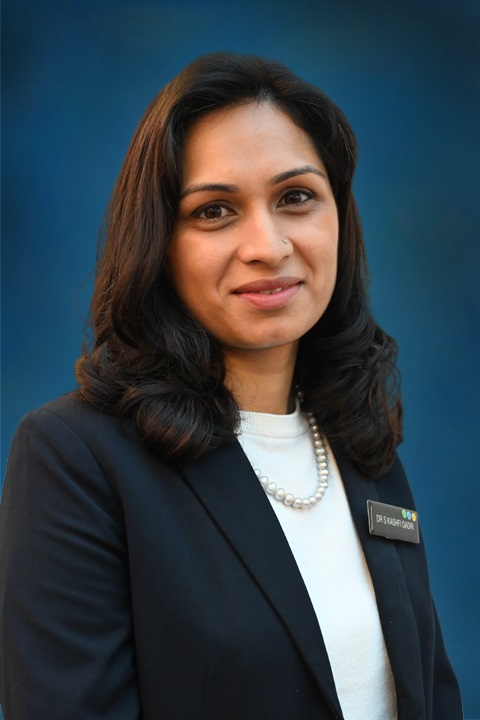Doctors and healthcare
professionals may have the
medical knowledge, but
SingHealth is moving away
from the ‘doctor knows best’
model of care to engage with
patients on a deeper level for an improved
patient experience, to better understand
what is truly important to them so as to
shape care accordingly. This is in line
with SingHealth’s aim of expanding the
SingHealth Patient Advocacy Network
(SPAN) across the cluster.
Patients are integral members of the
healthcare team and, through SPAN, they
are empowered to influence the care they
receive. At the KK Women’s and Children’s
Hospital (KKH), patients and their
caregivers offer solutions for the hospital to
design a healthcare system that is truly for
patients, by patients. The patient-hospital
partnership relies on various platforms, and
engaging SPAN@KKH is one of them.
SPAN@KKH comprises staff who are
Members, and any KKH staff may nominate
a patient and/or caregiver as potential SPAN
Advisors. Members then meet potential
Advisors at an introductory session to explain
the work SPAN does and invite them to
join the team. Members and Advisors, who
meet virtually once a month, work together
to drive efforts towards safe, quality and
compassionate care with the patients’
perspectives in mind.
“This has enabled the healthcare team
to look beyond medical treatment and
recognise what truly matters to our patients
and caregivers,” shared SPAN@KKH.
SPAN@KKH provides input and feedback
on issues such as policies, procedures, space
planning and education materials. In fact,
SPAN@KKH takes a two-way approach,
with Advisors also providing suggestions to
the healthcare team regarding service and
care delivery.
Project achievements
SPAN@KKH has offered inputs and advice
on over 30 project teams and topics. Among
the first few projects was a relook at the
hospital’s Patient and Family Rights brochure.
The previous version was too text-heavy
so advisors suggested presenting it in a
more reader- and patient-friendly style. This resulted in the development of an
infographic version of the brochure.

Another early project suggested by
an Advisor who is caregiver to a child
requiring complex care resulted in
designated parking or drop-off points
for patients with multiple medical
equipment. Previously, caregivers felt
rushed at the standard drop-off point
due to its high usage by private-hire
cars and shuttle buses. A multidisciplinary
team comprising Children’s Complex and
Home Care Services, Office of Patient
Experience, Security and Fire Safety/
Car Park Management came together and
implemented a designated drop-off point
and parking lots to increase convenience and
reduce stress for these caregivers.

Most recently, KKH received positive
feedback from a caregiver, who shared:
“I would like to express my appreciation
for the SPAN@KKH parking lot scheme.

This has greatly benefited my special
needs child and I as we are able to get
to our appointment on time without
being delayed.”
Other projects that SPAN@
KKH has been involved in include
improving caregiver engagement at
the CICU (Children’s Intensive Care
unit) Early Mobilisation Programme.
This multidisciplinary programme aims
to improve patient functional outcome,
clinical outcome and family-centred care.

Feedback from SPAN@KKH meant that
the initiatives under the CICU programme
were crafted with the perspective of the
patients and families in mind, and were
catered to their emotional state, particularly
for those whose children were not doing
well, said Dr Syeda Kashfi Qadri, Consultant,
CICU, KKH. Many patient- and familycentred
initiatives were implemented by
the CICU as part of its Let’s Move ’EM
programme, she added. These include the
bedside flipchart, which has an ‘All About
Me’ page to get to know the patients better
through their likes, dislikes, favourite toys
and activities, and a diary documenting their
critical illness journey. A memory card is
given to each patient as a memento when
they are discharged. With encouragement
from SPAN@KKH Advisor Mr Jonathan
Tiong, CICU also received $7,000 in funding
from GIC to support the programme.
“We are heartened that, with input from
SPAN, these initiatives have allowed us to
have a deeper connection with our patients
and their families, and offered a more
embracing and conducive environment on
top of the care we provide,” said Dr Kashfi.
To find out more or be involved in
SPAN@KKH, please reach out to Serene Pok
at [email protected].
Get the latest updates about Singapore Health in your mailbox! Click here to subscribe.
